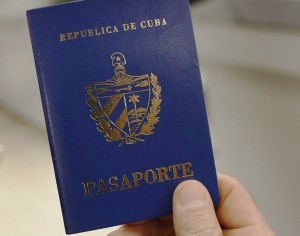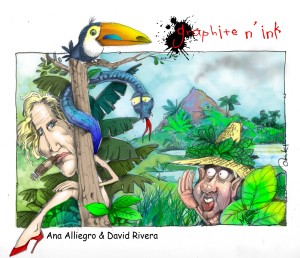
Cuban-Americans and U.S. elections
According to the 2010 Census, Hispanics (50.5 million) constitute 16 percent of the population of the United States. Cubans (1.78 million) are in third place, but most of them reside in Florida (1.21 million) and this state is key to the political elections. That was demonstrated in the latest presidential election. Parties and candidates court the Cuban vote. That is why the topic of Cuba is important and partially explains the positions that the candidates take with regard to it, even the changes in attitude by some contenders. Example? Charlie Crist. The interests of the Cuban community no longer agree with the policy laid out more than 50 years ago.
The ‘historic exile’
This sector, composed by Cubans who arrived in the States before 1980, is in a biological decline. Also in a numerical decline, because it does not account for even 20 percent of all Cuban-Americans. And, judging by the times and the attitudes being manifested (see the Atlantic Council survey), its chances for political reproduction are few. It is impossible to make politics with physical and/or programmatic walkers.
What about those who came after 1980?
These are the “new émigrés,” who account for more than 52 percent of those who emigrated from the island. They didn’t leave with their lap dog and the maid, because in many instances those didn’t fit into the raft; a huge majority, which has been increasing noticeably since Cuba opened the way to emigration, did it by plane. For various reasons — family, culture, mindset — they constitute the most energizing factor of the community. And they’re not “Castro-symps” but possess a vision that’s a lot more fresh, balanced and different from the Cuban reality than the historic exile in the process of extinction. Against that, the loud-mouths on Miami radio and TV programs can’t cope, because they’re unable to deal with a reality in the process of change.
The explorers: new generations
Last year, about 450,000 Cuban-Americans landed at Havana Airport. Many of them were first- and second-generation Cuban-Americans because they were born here, in the United States. Do you know how many? Well, 775,000, or 41 percent of the entire community. Bitten by the bloodline bug and the curiosity of experiencing the controversial island of their elders (a motivating combination), they go visit relatives and explore the possibilities of making some sort of investment through them. Already, there are small businesses started with bills that, from greenbacks to CUCs, are creating dividends. There’s plenty of examples in the cities and the farms, especially in what used to be called Havana-Countryside. These Cuban-Americans also vote in the U.S. And what if Cuba opens up even more? They’re not Fanjuls, but Perezes, Rodriguezes, Hernandezes, Garcias, Alvarezes, etc.
Some figures for interested candidates
Twenty-one percent of Cuban-Americans are below the age of 18, and 28 percent of the Cuban-American population are between the ages of 19 and 40 (Pew Survey of 2012). The latter group has a special attraction for the politicians because it can be described as the most active sector, economically and professionally. Those are the years when people become entrepreneurs, open paths for themselves, consolidate their gains and expand for the future. Yes, expand. Politicians who appreciate a discreet and sensible opening to the island will find in these Cuban-Americans a receptive ear.
‘Ana-dante Alliegretto:’ An opera with a coda.
 What a combination! An operatic parody of our city. In the cast: Ana Alliegro and the very illustrious anti-Castro politician David Rivera involved in a plot (reported by our colleague Yadira Escobar and El Nuevo Herald) whose finale is unpredictable, so it will keep our attention riveted. The opera has some fascinating touches of mystery, such as: If Ann-dante Alliegretto — arrested in Nicaragua and repatriated therefrom — at one point surrendered her passport to the authorities, how could she travel to Central America? Who provided her with documentation? Or this one: the secret trips to her side by the ineffable Rivera, who kept saying he had stopped seeing her. One thing’s for sure: this opera will have a long coda.
What a combination! An operatic parody of our city. In the cast: Ana Alliegro and the very illustrious anti-Castro politician David Rivera involved in a plot (reported by our colleague Yadira Escobar and El Nuevo Herald) whose finale is unpredictable, so it will keep our attention riveted. The opera has some fascinating touches of mystery, such as: If Ann-dante Alliegretto — arrested in Nicaragua and repatriated therefrom — at one point surrendered her passport to the authorities, how could she travel to Central America? Who provided her with documentation? Or this one: the secret trips to her side by the ineffable Rivera, who kept saying he had stopped seeing her. One thing’s for sure: this opera will have a long coda.
Progreso Semanal/ Weekly authorizes the total or partial reproduction of the articles by our journalists, so long as source and author are identified.

